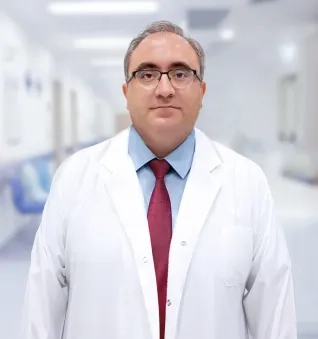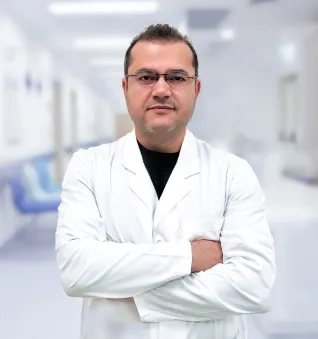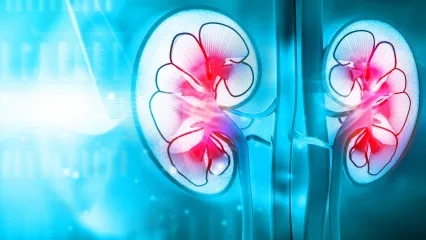Alo Yeditepe
Alo Yeditepe
10 Questions About Kidney Transplantation
Nephrologists make maximum efforts to stop and, if possible, cure kidney damage in people whose kidney function has been impaired by various diseases. The aim is to keep the patient's own kidneys functioning for the longest time possible. When renal failure reaches the end stage despite all interventions, treatment is needed for the patient to survive. Nowadays, in all compatible patients, kidney transplantation is the ideal treatment.
Yeditepe University Kosuyolu Hospital General Surgery Specialist Answered the Frequently Asked Questions About Kidney Transplantation.
What Is Cadaveric Kidney Transplant? Can Anyone Who Deceased Be a Kidney Donor?
In fact, the term cadaver is not accurate. A person who is on the borderline between life and death, who is connected to life support devices in the intensive care unit and who has been scientifically proven to be brain dead, and who will definitely lose his/her life when the circulation stops in a short time when he/she is separated from the devices. There is no going back from proven brain death. Unfortunately, organs cannot be removed from every patient who develops brain death. The organs of patients with untreated cancer, infectious diseases, or related organ failure are not compatible. It is also necessary to obtain permission for "organ donation" from the first-degree relatives of the person. In our country, both brain death notification and donation rates are low.
Can Kidney Transplantation Be Performed by a Living Donor?
Although the main procedure is cadaveric kidney transplantation, living donor kidney transplantation is performed because there are not enough organs for every kidney failure patient, and it provides longer kidney life when performed by a suitable donor. Kidneys can be obtained from people who have volunteered to donate organs, who are over the age of 18, who are mentally and physically healthy, who are blood relatives up to the fourth degree, or after approval by the ethics committee of the Ministry of Health, who are not relatives.
Why Transplantation is the Best Option in Severe Kidney Failure?
The treatment options to replace the kidney are, as mentioned before, kidney transplantation, continuous peritoneal dialysis, and hemodialysis at home or in a facility. Not every treatment option is suitable for every patient. The following nephrologist is obliged to determine the most appropriate treatment for the patient before the development of end-stage renal failure and to direct the patient in that direction. Among these three treatment options, the most favorable one in terms of cost/benefit ratio, patient life expectancy, and quality of life is kidney transplantation. However, kidney transplantation is performed with 2 individuals. Kidney transplantation cannot be performed without an organ donor.
What is the Difference Between Brain Death and Coma?
Brain death is the irreversible death of the "brain stem region" that manages vital functions in the brain. Coma is the temporary loss of function of the cerebral cortex due to various factors such as poisoning or infection. Coma can be reversed. As already mentioned, brain death is irreversible.
Can Every Patient with Severe Kidney Failure Undergo Transplantation?
In fact, every person with end-stage renal failure is a candidate for kidney transplantation. However, those who have an additional disease such as coronary heart disease or infection such as B-C virus hepatitis or tuberculosis, or urinary tract disorder that may affect the kidney transplant surgery and its results can be transplanted after treatment of these existing conditions.
Apart from renal failure, patients with untreated mental and neurological diseases and those with cancer cannot be kidney recipients. In some genetic diseases, liver and kidney transplantation is performed together.
What kind of a Procedure Awaits Patients Applying for Kidney Transplantation?
If the person with end-stage renal failure applies for cadaveric kidney transplantation, blood group, and tissue groups are analyzed. Detailed examinations and tests are performed and all systemic diseases such as heart disease, cancer, jaundice, and lung disease are examined. If any, these diseases or problems are treated first. Otherwise, the patient is registered in the national organ transplant database and waits for a suitable organ to be available.
If there is a living donor, the blood and tissue groups of both are examined. The same principle applies here as in blood transfusion. rH factor is not important in kidney transplantation. In addition, the blood and cells of the donor and recipient are compared, and it is investigated whether the recipient has antibodies against the donor. Similarly, detailed examinations and investigations are carried out for both of them to determine whether any diseases are preventing them from transplantation and those to be diagnosed are treated before transplantation. Transplantation is postponed until every obstacle to transplantation is removed.
Preparation for kidney transplantation is a period in which the donor as well as the recipient is examined in detail. Not every volunteer can be an organ donor without being in good health. So to speak, a living donor is a person who "Sacrifices for the benefit and happiness of another person". For this reason, the donor must maintain his/her health after kidney transplantation, not gain weight and quit smoking.
If organs are harvested from people with a body mass index over 35 or who receive more than 1 blood pressure medication or who have serious systemic diseases, these people may develop blood pressure irregularity, loss of protein in urine, and even renal failure after transplantation. The medical effects of kidney extraction from such marginal donor candidates on both the recipient and the donor should be taken into consideration.
How Do Patients' Lives Change After Kidney Transplantation?
In the early period of kidney transplantation, patients take more medication than before while adapting to the new process. In time, the number and intensity of these medications decrease, and in a significant proportion of patients, the medications continue for life. Weight gain due to increased appetite and skin side effects of the medication may make some patients cosmetically unhappy in the early period. A well-adapted, well-functioning kidney can eliminate all metabolic and systemic damages of chronic kidney disease.
Kidney transplant recipients can return to working life after a certain period, continue school, and female patients can have children.
What are the Live or Cadaveric Transplantation Rates in Turkey?
According to Turkish Society of Nephrology data, 19100 people were living with kidney transplants in Turkey as of 2019. The number of kidney transplants performed in 2019 was 3858, of which 805 were cadaveric and 3053 were living donors. This 80 percent living donor kidney transplantation is approximately the same every year.
How to Increase Kidney Transplants from Cadavers?
Some countries, notably Spain, have succeeded in increasing cadaveric kidney transplantation. In order to increase cadaveric transplantation - of course, every patient in the intensive care unit should recover - it is necessary to increase the detection rate of brain death, improve the standard of care for brain-dead people, and, finally, increase the acceptance of the relatives of patients when they are offered donation, in other words, to increase social "altruism". In addition, facilitating initiatives can be taken for organ donor families, for example, for the education of their children. Other forms of support may be considered. However, these should be under the supervision and control of the state.
This content was prepared by Yeditepe University Hospitals Medical Editorial Board.
”
See Also
- Fall from Height Led to Kidney Failure, Saved by Sister's Donation
- What is a Liver Transplant, How is it Done? and Who is it For?
- Journey of Hope from Georgia to Turkey: 63-Year-Old Father Donates Kidney to Son
- Birthday Gift Becomes a Gift of Life: Kidney Donation from Husband of 20 Years
- Can Liver Cancer Be Prevented?
- What is Hypoglycemia?
- Common Misconceptions About Kidney Transplantation
- 19 Years Old Davut MİNAZ, Who Lost 45 Kilos in 4 Months, Clung to Life with His Father's Kidney
- Kidney Diseases and Treatment Methods
- What are the Problems Requiring Gallbladder Surgery?
- Gallbladder Surgery is a Necessity, Not a Choice
- What is Organ Donation?
- How Should the Daily Salt Consumption Amount Be?
- What is Cirrhosis? What Causes Cirrhosis
- Misconceptions About Hypertension
- Chronic Kidney Disease and Treatment Methods
- What is Hypertension?
- Things Wondered About Kidney Transplantation and Organ Donation
- If You Consume More Than 5 grams of Salt...
- The Frequency of Hepatitis Seen in Dialysis Patients Is Decreasing
- 12-Year-Old Tuğba Nur Survived with Transplant
- Excess Protein Does Not Increase Muscle Mass, and It Impairs the Kidneys
- AV FISTULA Should Be Done At The Right Time For Hemodialysis Patients
- Pay Attention to Kidneys in Pregnancy!
- He Held On To Life with His Brother's Kidney
- Recommendations to Strengthen the Immune System
- Kidney Failure Caused by Ear Obstruction
- There is Still a Lot of Misconception About Organ Donation
- He Lost 20 Kilograms in 40 Days for His Wife
- One Out of Every Seven People Has Kidney Disease
- How Should Kidney Patients Be Protected From COVID-19 Coronavirus?
- What is Propolis? How to Use Propolis?
- Improper Nutrition Invites Kidney Failure
- Important Warning from the Expert: “Not Adding Salt to Meals Alone Is Not Enough”
- 8 People a Day Lose Their Lives While Waiting for Organ Transplantation in Our Country
- Attention to Drug Use After Kidney Transplantation!
- Are Your Kidneys Really Healthy?
- Being Thirsty in the Heat Tires the Kidneys!
- Liver Cancer (Tumor) and Treatment
- Tissue Harmony Is Also Important for Success in Kidney Transplant
- Phytotherapy and Immune System
- What is a Kidney Transplant?
- Hereditary Kidney Diseases Are Underrecognized!
Alo Yeditepe









